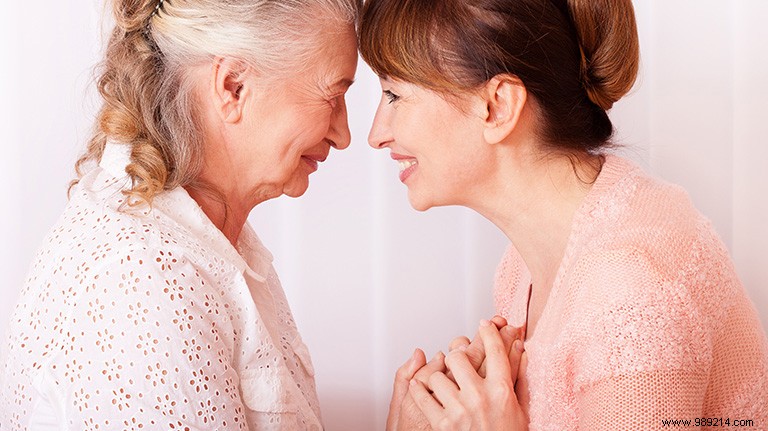
Not easy to be a caregiver or if you prefer a person who accompanies in his spare time a person of his entourage in a situation of illness or loss of autonomy. The help provided has many consequences on the life of the caregiver, and in particular on his or her health. We take stock for you of the aid that exists to relieve you, if you are concerned.
What is being a caregiver?
A caregiver is a person who accompanies on his spare time a person of his entourage in a situation of illness or loss of autonomy. The help provided has many consequences on the life of the caregiver, and in particular on their health.
The definition of “caregiver given by COFACE in its European Charter for Family Caregivers is:"Non-professional person who comes to the main assistance, in part or totally, to a person dependent on his or her entourage, for the activities of life daily. This regular help can be provided permanently or not and can take several forms, including nursing, care, support for education and social life, administrative procedures, coordination, permanent vigilance, psychological support, communication, domestic activities, etc. . ".
Nearly 8.3 million people in France are caregivers (DREES, 2008).
The caregiver accompanies a person who is sick, has a disability, or has become dependent due to age. The person the caregiver accompanies can be their spouse, parents, friends, relatives or neighbours.
Being a caregiver often has a strong impact on daily life. This can bring up problems such as lack of time for oneself, disruption of professional activity, administrative worries or even neglect of one's own health.
This is why it is often necessary to appeal to professionals to lighten the daily lives of caregivers and do not hesitate to use appropriate aids.
How to stay healthy by being a caregiver?
The caregiver may develop health problems health such as anxiety, stress, disturbance or lack of sleep, chronic physical pain and moral fatigue or even depression. His diet may be disturbed. Finally, he may also be led to refuse a consultation or hospitalization for lack of time or having too much recourse to medication.
In general, it is important that the caregiver continue to take care of themselves and have a social life.
Food is an important element:the caregiver must give themselves the time to take their 3 meals a day and make sure to maintain, or even strengthen, their nutritional balance.
Sleep of the caregiver may be disturbed by the fact that the person being accompanied has a restless sleep. In this case, it may be useful to install a walkie-talkie or "babyphone" type system that allows you to move away while maintaining surveillance, to have a separate bedroom or to occasionally keep the person accompanied by a professional.
For everyone, following a few tips gives you a better chance of a good night's sleep:promote relaxing activities in the evening and avoid stimulants, go to bed and wake up at regular times, avoid screens (telephone, computer, television).
Physical activity helps to relax and prevent many diseases. It is recommended to practice the equivalent of at least 30 minutes of brisk walking per day. This time can be reached by daily activities:going to work or shopping, gardening, etc
At any age, it is possible to resume physical activity, alone or in a group, by taking a few precautions.
(Re-)find a sense of emotional and spiritual well-being may seem difficult but adopting good habits gives real benefits. For example,
For more information: Consult the advice sheets of the French Association of Caregivers:
What assistance is available for the accompanied person?
The caregiver can call on the accompanied person for human and financial assistance to facilitate home care, as well as temporary reception and other respite solutions ensuring the care of the accompanied person for a few hours or a few days.
Financial assistance for home care are numerous and depend on the profile of the person accompanied and the resources of the household:
Respite solutions include:
Telecare
The teleassistance services make it possible to mobilize specific help depending on the person's needs and the reason for the call.
What assistance is available for the caregiver?
The caregiver can benefit from support actions for better living and financial aid. Support actions dedicated to carers exist. For example, among the free actions led by health professionals or social workers,
To find the actions near you, consult the interactive map of the French Association of Caregivers
Financial aid is linked to the situation of the accompanied person.
For example, parents of children with disabilities are entitled to an Education Allowance for Disabled Children (AEEH). Relatives helping a dependent elderly person and having therefore interrupted their professional activity may be remunerated within the framework of the personalized autonomy allowance (APA).
How to organize your professional life when you are a caregiver?
Caregivers can benefit from specific leaves, legal provisions or tailor-made arrangements. For more information, see the practical sheets "Reconciling caregiver life and professional life" and "Retirement for caregivers" from the French Association of caregivers.
Who should you contact when you are a caregiver?
Caregivers can turn to many structures to facilitate their procedures and receive support.
For carers accompanying an elderly or disabled person
To find out more and find out about the structures near you, see the practical sheet "Interlocutors to solicit" from the French Association of Caregivers.
References
Source:
Writing: